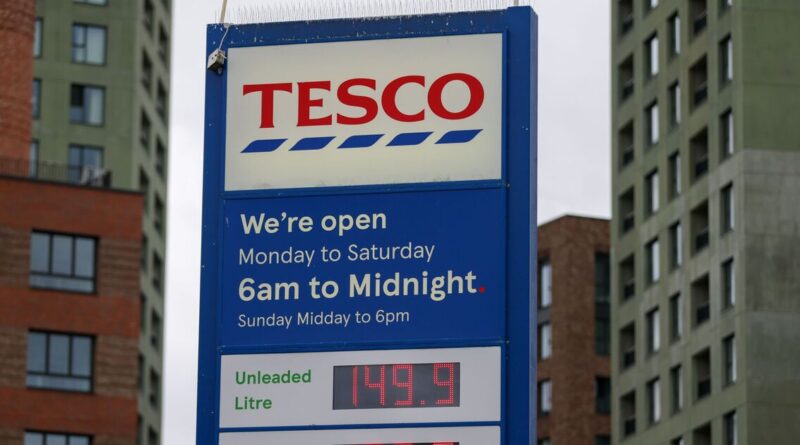Drivers incorrectly filling up at Tesco could get a criminal record | Personal Finance | Finance
Drivers filling up at Tesco petrol stations across the country could be at risk of committing a crime – plus a fine of up to £20,000 due to small print rules. The problem stems from the fact the supermarket chain has strict regulations in place when it comes to filling up containers, as opposed to simply putting petrol or diesel in the tank.
Tesco rules state that customers are only allowed to fill up a maximum of two containers, and the restrictions do not stop there. The supermarket points to regulations from the Petroleum Enforcement Authority which state these containers must not exceed 30 litres in total – the maximum amount that can be legally stored by a private individual.
At the same time, only authorised plastic or metal containers are allowed – with plastic containers capped at 10 litres and metal ones at 20 litres.
All petrol containers should be also be labelled “PETROL” and “HIGHLY FLAMMABLE”, with a hazard warning sign and the capacity in litres. The containers should also have the manufacturer’s name and the date and month they were manufactured.
The rules state: “As petrol is a highly flammable substance, ignoring these rules could pose a serious danger to yourself and others. Transporting illegal quantities of fuel can also result in heavy penalties – including a possible 12-month conviction and fines of up to £20,000.”
Tesco insisted that it is only following rules that apply to all petrol stations. It told the Oxford Mail: “Under the Petroleum Consolidation Regulations, we are required to have a policy in place to ensure the safe use of portable fuel containers at our petrol stations.
“Our policy is that only two portable containers (with a maximum combined capacity of 30 litres) may be filled on each visit by a customer.”
It comes as new rules at Asda and Sainsbury’s mean some petrol stations will impose a £100 pre-authorisation before motorists can fill up. This is to ensure customers have sufficient funds to cover the fuel dispensed, as per new industry requirements mandated by Visa and Mastercard.
For Asda, the change comes as part of a wider overhaul of drive-thru payment kiosks at 82 superstores which began in December – with station staff being shifted in-store. A spokesperson said: “More than 90 per cent of all payments on our Superstore forecourts are made via card or a contactless device.
“The colleagues who worked on these sites are moving into the store so they can better serve our customers. These conversions began in December and we expect to complete the changeover later in 2024.”





